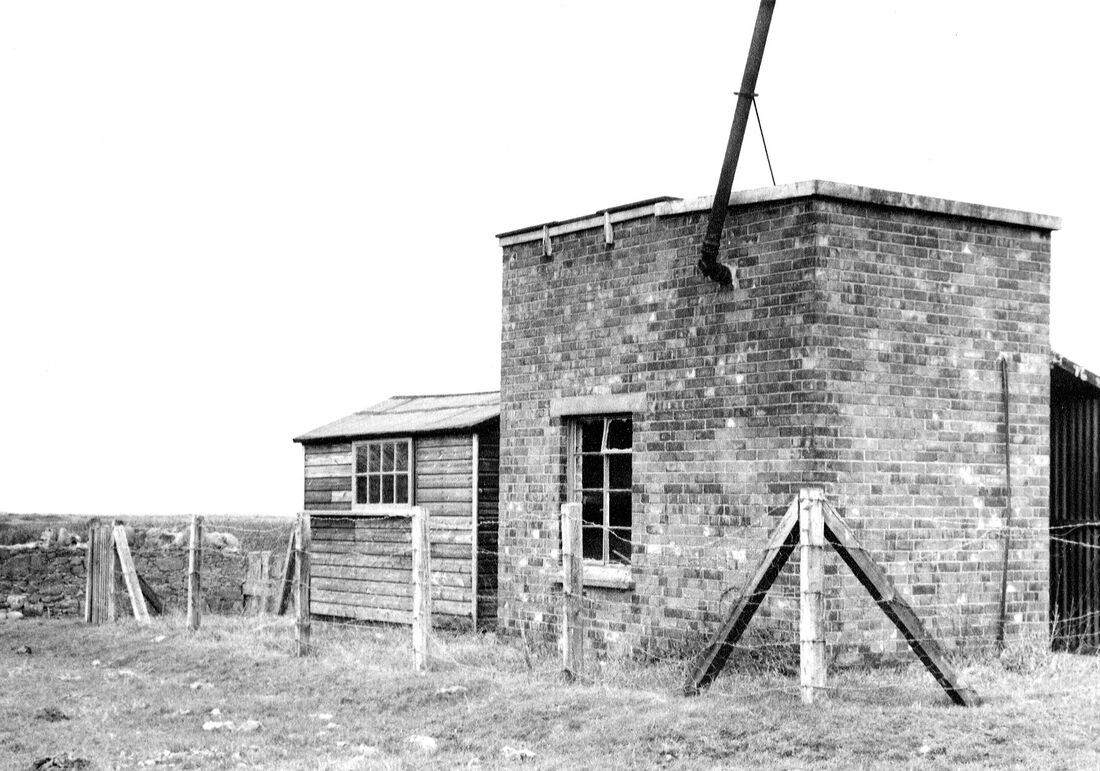Civil Defence
 The Observer's lookout post on Sparkhayes Lane.
The Observer's lookout post on Sparkhayes Lane.
With all able-bodied men between 18 and 41 called up to fight (unless in reserved occupations), there was a very real drain on manpower, so local people stepped up in many ways to help protect lives at home.
In September 1939, Air Raid Precaution wardens were appointed to enforce the blackout. Every house and shop had to put up heavy curtains and shutters to prevent light escaping at night.
The few vehicles still on the road had to shield their headlights. ARP wardens also oversaw the issuing and use of gas masks, served as despatch riders and ambulance drivers, and carried out other civil duties. Some women were involved in ARP duties through the Women’s Voluntary Service.
In Porlock, the head ARP warden was one of the village postmen, Arthur Glanville. Glanville lost a son, Ivor, in the war (see Roll of Honour).
Other men were recruited as Auxiliary Fire Wardens and as Special Police Constables to bolster the depleted ranks. Some were permanently appointed to these roles.
The Porlock unit of the Royal Observer Corps manned a lookout position on Sparkhayes Lane. All men were volunteers, working day and night shifts, two men at a time, manning their post before or after their daily work duties. They scoured the skies, spotting, identifying, tracking, and reporting the movements of all enemy aircraft flying over the area, with a direct telephone link to a control centre in Yeovil. The corps’ leader was Edgar Perkins.
To keep track of shipping movements in the Channel, the Coastguards manning the post at Hurlstone Point were supported by two special coastguards who patrolled the coastline, on the lookout for beached sea mines and any suspicious activity. Jack Marley patrolled from Hurlstone to Porlock Weir, while Ewart Perkins patrolled westwards from the Weir.
Many women took on extra duties with the Red Cross, being trained in first aid and basic nursing skills. In Porlock, they built on the achievements of the local Voluntary Aid Detachment established in the First World War.
The Women’s Land Army also provided vital labour on the farms, replacing those men called up for war. Some of these 'Land Girls’ lived on the farms, while others were billeted in the village. Other women helped with forestry work.
Dovery Manor Museum © 2018 All rights reserved.
Registered Charity Number 1079760
Registered Charity Number 1079760
